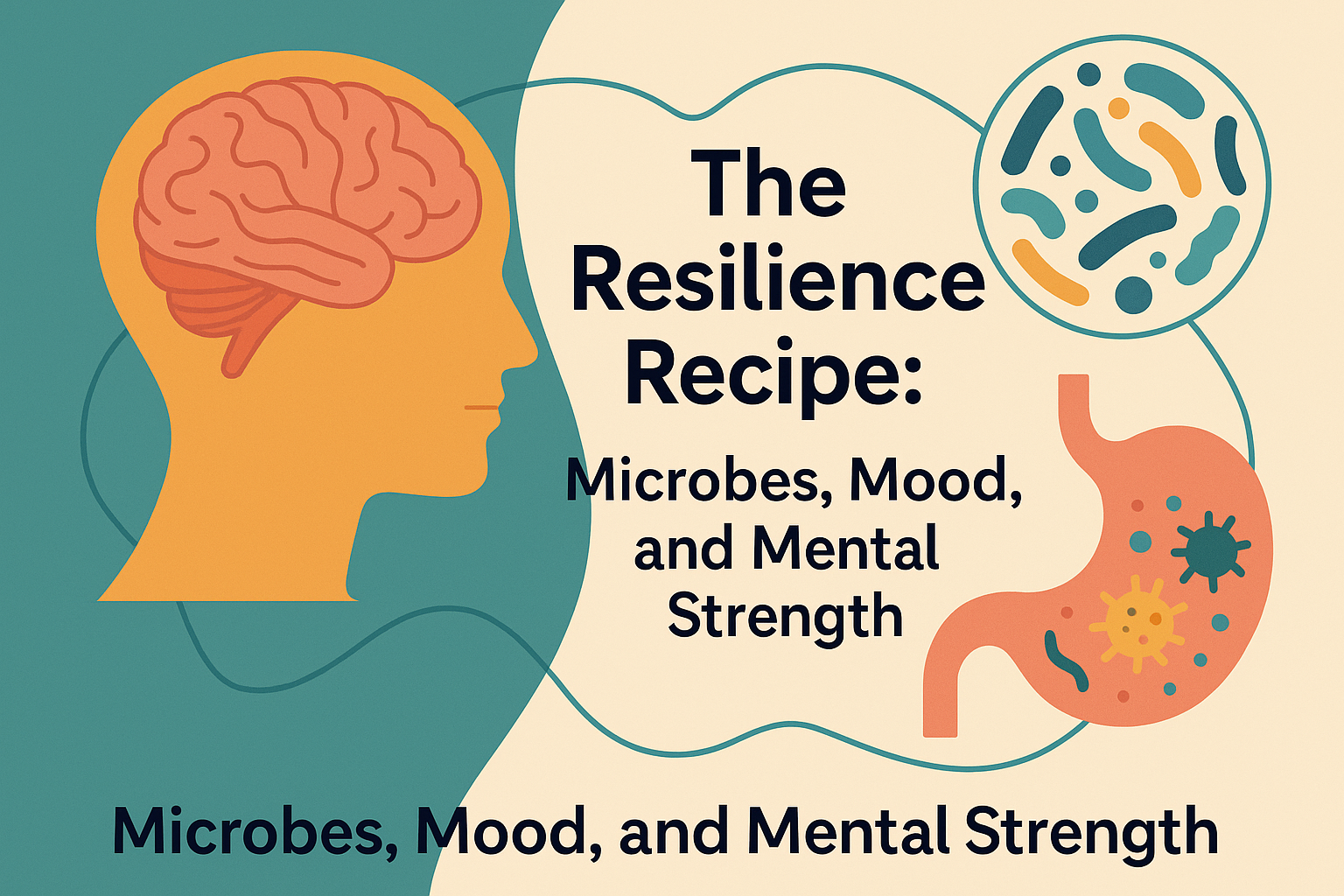The Resilience Recipe: Microbes, Mood, and Mental Strength
Welcome to this week’s Gut Check, your Friday roundup of the freshest microbiome news from the front lines of gut science, mental health, and healing. These new findings continue to unravel the powerful ways your inner terrain is connected to emotion, intuition, and resilience. Let’s dive in.
Your Mouth Might Be Messing with Your Mood
A new study found that people with depression tend to have less diverse bacteria in their mouths. Yes, mouths. We usually think of the gut when we talk microbes, but it turns out your oral microbiome may also influence mental health. Researchers found that lower oral bacterial diversity was associated with higher depressive symptoms.
The oral microbiome is often overlooked, but this study adds it to the growing list of bodily ecosystems that may influence mental well-being. Some researchers believe the mouth may be a gateway, not just to the gut, but to inflammatory pathways that affect the entire body. The microbes there may interact with the immune system in a way that alters brain chemistry over time.
While the mechanisms aren’t fully understood, scientists are looking closely at how oral bacteria influence systemic inflammation and possibly even neurotransmitter function. Your next emotional reset might just start with a floss. Read the study summary.
Food Insecurity Disrupts Your Gut and Your Mind
A Mount Sinai-led study published this week found that people facing food insecurity had a higher risk of cognitive decline—and those same individuals had lower microbial diversity in their gut. In other words, when access to nourishing food is disrupted, the gut ecosystem suffers and so does brain function.
The connection between food access and microbiome health goes beyond just caloric intake. Nutrient quality, diversity, and consistency all play a role in how well your gut microbiota can thrive. And when that internal balance is thrown off, the ripple effects show up in memory, concentration, and emotional regulation.
This research highlights how gut health is shaped not just by individual choices, but by social conditions. It underscores that healing and resilience are not just about what’s on your plate, but whether you can reliably access that plate in the first place. Explore the findings.
This Inflammatory Microbe Might Be Messing with Your Head
Researchers at Harvard identified a gut microbe, Morganella morganii, that produces a compound linked to inflammation and major depression. This is more than just a loose association. It’s a real biochemical clue to how specific microbes might directly contribute to depressive symptoms.
The compound appears to trigger inflammatory responses that interfere with neural communication. This inflammation is believed to affect the brain’s reward systems and mood regulation centers, contributing to feelings of lethargy and hopelessness that often accompany clinical depression.
This kind of precision research helps redefine mental health as not just a psychological state, but as something that may be profoundly shaped by microbial metabolism. It opens new therapeutic doors and points to the microbiome as a potential frontier in depression treatment. Read more here.
The Gut-Brain Axis and the Long COVID Connection
Stanford scientists have been connecting dots between the gut and lingering mood issues seen in long COVID. Disruptions in the gut-brain axis may explain everything from anxiety and brain fog to more serious neurological changes. And this axis? It’s shaped by what you eat, how you heal, and who’s living in your gut.
These researchers found that even months after acute illness, the gut microbiome can remain out of balance. This may prolong or intensify symptoms like fatigue, difficulty concentrating, and mood instability. Many of these symptoms mirror those seen in inflammatory or autoimmune conditions—further tying the gut to systemic responses.
Understanding this connection offers new ways to support healing—not just through medications but also through microbial restoration, diet, and mindfulness practices. View the Stanford findings.
Stress Resilience Is Written in the Microbiome
A recent review found that people with strong emotional resilience tend to have gut microbiomes that support anti-inflammatory compounds and better gut barrier integrity. In short, they’re not just mentally tough—they’re microbially supported.
These individuals often have higher levels of short-chain fatty acids like butyrate, which support both gut lining integrity and brain health. Their microbiomes also seem to help regulate cortisol, the hormone that governs our stress response. This balanced internal environment may set the stage for greater psychological flexibility.
This review adds scientific weight to the idea that resilience isn’t just a mental skill but a biological state. When your gut ecosystem is thriving, your ability to bounce back from challenges becomes more than just willpower—it becomes microbial. Explore the review.
That’s Your Weekly Gut Chat
This week’s studies offered a reminder that resilience, nourishment, and healing are never just mental—or physical. They’re both. And the bugs in your belly and even your mouth might be helping steer the ship.
Stay curious. Stay grounded. We’ll be back next Friday with more microbiome magic.




0 Comments